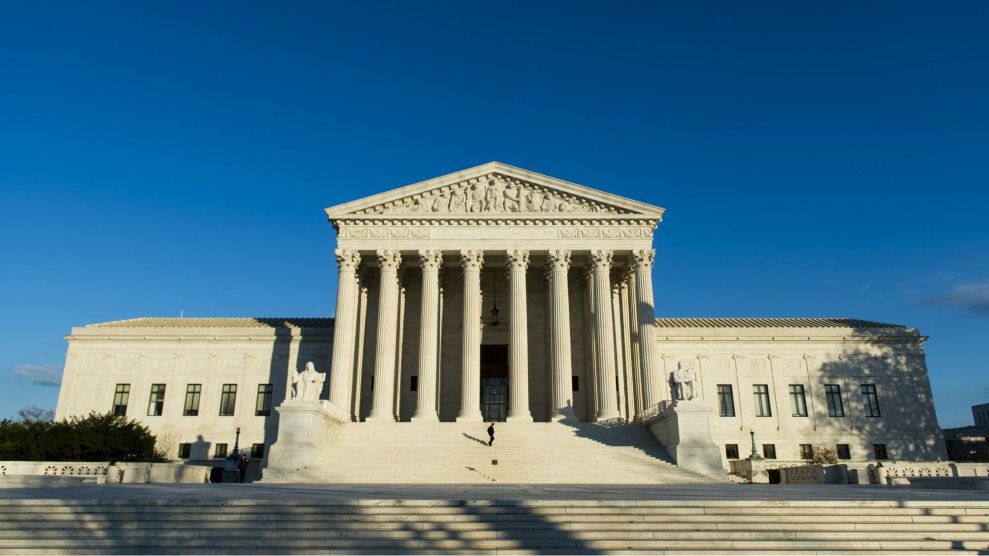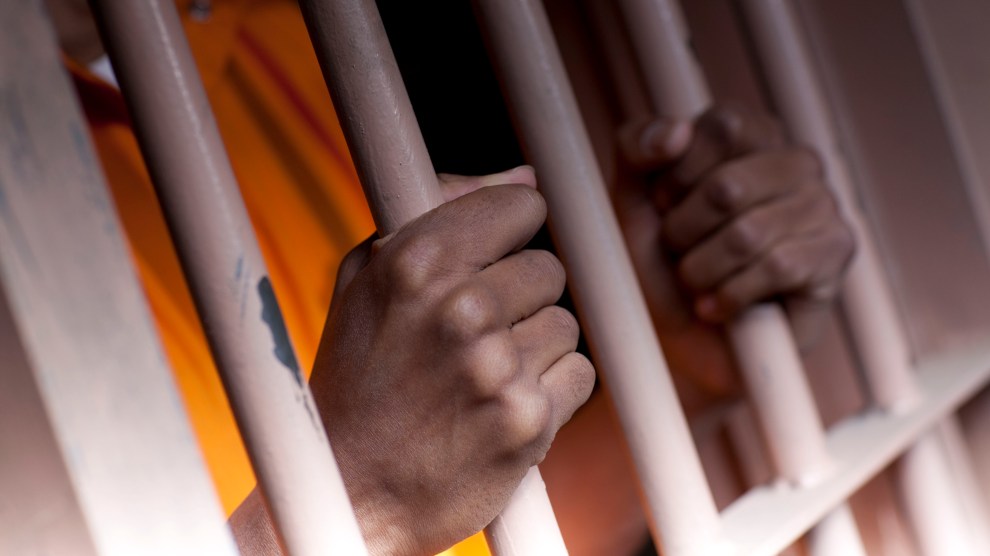
Bill Clark/CQ Roll Call/AP
Keith Tharpe, a black Georgia death row inmate, was sentenced to death in 1991 for the kidnapping and murder of his estranged wife’s sister-in-law Jaqueline Freeman. At trial, Barney Gattie, a white juror, sentenced Tharpe to death in part because he believed that there were two types of black people—”regular black folks” and “niggers”—and Gattie thought Tharpe was the latter and deserved to die. Nearly 30 years later, no court has ever heard Tharpe’s claim of juror bias. After several unsuccessful attempts in the lower courts, his case finally reached the Supreme Court. But on Monday, the high court declined to hear his case.
One of the white jurors on the case may have voted for the death penalty because Tharpe is black. According to court documents, Barney Gattie, a white juror, said he believed there were two types of black people: “regular black folks” and “niggers.” The victim, in Gattie’s opinion, was black, but Tharpe was a “nigger.” He told one of Tharpe’s lawyers that this distinction factored into his decision on whether to vote for death. Although this raises serious questions about racial bias in cases involving capital punishment, no court has ever examined Tharpe’s claim.
Then, in 2007, the state appeals court held hearings about an intellectual disability claim but did say this about the juror bias claim: “[T]he fact that some jurors exhibited certain prejudices, biases, misunderstandings as to the law, or other characteristics that are not conducive to neutral and competent fact-finding is not a basis for impeaching the jury’s verdict.”
Finally, in 2010, Tharpe’s case made it to the 11th Circuit. It ruled that the state’s previous ruling on his juror claims could stand because he hadn’t raised the claim early enough. In other words, the delay prevented Gattie’s racial bias from being taken into consideration.
Tharpe’s attorneys appealed, and the day he was supposed to be executed, September 26, 2017, the Supreme Court issued a last-minute stay and remanded the case back to the 11th Circuit for reconsideration. In 2018, the federal court once again denied the defendant, saying he was barred from raising the claim.
















